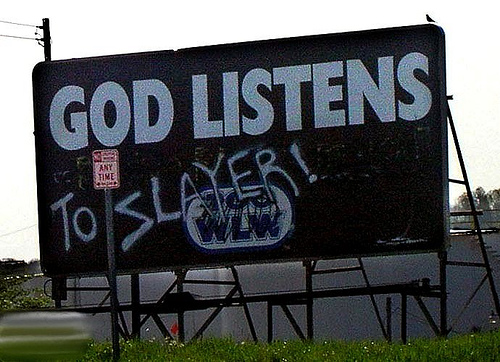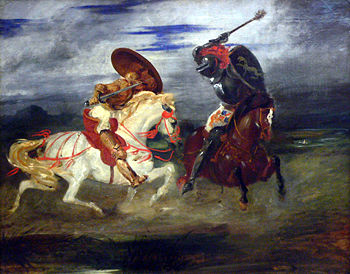You’re coming within earshot in the middle of this conversation…
Gregory: … well, one hopes we’re actually making progress in theosis, otherwise what are we doing?
Basil: Sure, but how do you measure that? I mean it’s not like notches on your belt.
Gregory: No, but the fathers do speak of increments to enlightenment, though I think those are helpful ways of discussing it, where it’s actually quite fluid.
Basil: Enlightenment? I don’t know that I’m comfortable with that word.
Gregory: That’s the word they use. fairly frequently, from ancient times. It’s used that way in the scriptures.
Basil: But I think you have to qualify that – explain what you mean. Otherwise, it’s dangerous. People might misunderstand.
Gregory: I think if you have to immediately qualify something, you can’t really hear it. Its meaning gets systematized, defined, lost amid all the qualifications. I prefer to listen to the fathers than perhaps misunderstand because I qualified them
Basil: Sure, for you and I, that’s fine. But you have to be careful about talking about these things around people who can get easily misled.
Gregory: But that’s just it, I think we’re the ones likely to be easily misled, thinking we understand something better than people who can hear it without qualifications.
Don’t worry: This conversation didn’t actually happen, nor does it mirror a recent one in which I’ve changed the names or the topic. It’s just an amalgam of discussions I’ve been in (often involuntarily) or witnessed (and from which I’ve quietly walked away – like a ticking package).
We like our religion as white meat. Pretty, and well-behaved. It sits up straight; it doesn’t chew with its mouth open, and it doesn’t smell.
|
I think, though, it’s illustrative of two approaches to understanding. One tries to hear, and one tries to explain. One tries to understand, and one tries to make it understandable to the public. One is looking to learn from the fathers, even if they’re speaking about radical things that challenge our understanding of what the basic questions are, and the other is looking for how to “balance” the fathers, so our basic questions remain answered to our satisfaction.
I fully expect someone will wish to “balance” this post as well, kind of illustrating my point. The rush to qualification precludes us really hearing anything – the intent of the author, the reality to which they’re speaking… what we end up with is the Protestant impulse to classify things, immediately upon hearing or encountering them, as “true” or “false”, “right” or “wrong”, “extreme” or “balanced” (whatever that means). We like our religion as white meat, pretty, and well-behaved. It sits up straight; it doesn’t chew with its mouth open, and it doesn’t smell. Like a dutiful son, it’s got one hand in our cultural mother’s lap. In other words, it’s Protestant.
Who of us presumes to “balance” the fathers who attained enlightenment and achieved theosis? It is they who would “balance” us, if we even presumed that “balance” is a Christian objective.
|
But that’s not the true religion we Orthodox have received. Not at all. Our religion, very often, quite literally doesn’t bathe. Our Faith has stubble – a bit more than stubble, actually, if we keep it whole. It isn’t a neatly-defined set of categories. We don’t carry around “study bibles”, with glossaries in the back (despite recent Quixotic attempts to adapt them to us). We have messy religion. Not Anglican-messy – I don’t mean that (and no offense meant to you Anglicans, but you couldn’t exactly get offended unless you already know what we’re talking about. Here we don’t buy the: “We can say the N word, but you can’t!” reasoning.). But we have religion that says repeatedly, “you’re not able to understand, no matter what you do, and you may have to live with that.”
The rush to qualify is the rush to make truth safe, even before it can be understood. To make it fit the pre-existing conception of the puzzle – the mental picture on someone’s cognitive box. And as such, it means we can never learn again, not really. We can never sit at the feet of the holy fathers and learn, because we are not willing to go back and question the shape and structure of the puzzle, once we started filling in the pieces. The rush to qualification blinds us, so that our initial assumptions become unaccountable absolutes, and we are no longer subjecting our own thoughts to the rigours of Christian thought and the pedagogy of Christian ‘thinkers’, but now are the makers of our own Faith. Again, Protestantism.
Our religion, very often, quite literally doesn’t bathe. Our Faith has stubble.
|
The rush to qualification is a Protestant impulse as surely as the rush to fragmentation and, indeed, they are causes of one another. The attempt to nail down a definition of all religious understanding and experience, a thoroughly Protestant approach, to afford a unified theory of Faith (Sound Roman Catholic? That’s where it came from.), is ironically the very creator of factions that, by that same Protestant impulse (defining the “church” and the “faith” by acceptance of definitions of other doctrines) spawns tens of thousands of denominations. In other words, the rush to qualification is the genus of denominationalism. It is the beginning of the crumbling of that authentically catholic understanding of Christendom that we begin with when we read the fathers in the first place, and from which Christendom fell (read Western Christianity), when it proclaimed itself sole arbiter fide.
As to the particular form of qualification we’re calling “the rush to balance” – who of us presumes to “balance” the fathers who attained enlightenment and achieved theosis? It is they who would “balance” us, if we even presumed that “balance” is a Christian objective, which we don’t. Yes, I’m aware of various proof texts that one may like to cite when trying to fashion Christianity into an expression of the culture – into Christendom, but we’re Orthodox, not Episcopalians (OK, you can fault me for that one). That’s just the thing, you see, arranging a bunch of texts so they say what we want them to say is itself a form of qualification, definition – it too can, if we haven’t really listened first, mitigate actually hearing the fathers teach. And hearing the fathers teach is NOT a safe thing. Not at all.
Talk about unsafe… union with God, becoming God, theosis, deification… what we Orthodox mean when we say the word “salvation”… that’s not a safe thing at all.
|
This is why the one ‘qualification’ that is commended to us by the fathers themselves, is having a guide in our Father Confessor, one who imitates the fathers and follows in their path, so that in reproducing in ourselves the teachings of the fathers, we find we are reproducing the behavior of those who follow them. That’s not safe, either. If you’re an amateur logician, like me, you’re already seeing how this could be subjective, how it could go astray – how, frankly, it’s a fallible source of knowledge and understanding, and even a dangerously reproductive one. Yup. Indeed. Let me say again, yes, you’ve got it. It’s not safe.
It comes down to whether you believe, like the heterodox, that reason can take you all the way (or that you need a religious component, too, but you really mean religious reason – that scripture, tradition, and faith produce an ever evolving succession of agreed statements or more religious philosophy), or whether you believe that the Holy Trinity must work with you in synergy to save your mind, and it can’t all be nailed down, even in trying to define what constitutes a “mystery” (wow – if you succeeded, you’d fail, because they wouldn’t be mysteries anymore). You can’t prove synergy in a logician’s “laboratory” – you can only demonstrate the need for it. Nor can you get by with a “leap of faith”, as you might hear from Rome (might as well give your credit card number over the phone). It’s an activity, though, and one that’s embarked upon as a path into the fullness of Orthodox experience, and not as reducing all these questions to matters of religious philosophy. We are an asceticism, not a belief system.
The attempt to nail down a definition of all religious understanding and experience, to afford a unified theory of Faith, is ironically the very creator of tens of thousands of denominations.
|
It is certainly true that any one father does not speak alone, but speaks within the consensus patrum. And if you wanted to call that the fathers “balancing themselves”, it’s hard to object. Though, personally, I think you’re reducing patristics then to a discussion of emphases and feelings and missing the point. Once you’ve got an entirely pliable discussion of emphases, you can pretty much mold what you want, and we’re just as easily back to fashioning the puzzle each according to our own cognitive maps, whether priest, layman, or monk. Flesh is something – there is a form to it – an Orthodox attitude, if you will – it’s neither in the glossary and the index, on the one hand, nor in the ever-mutable amalgam on the other. We’ve seen that argument play itself out on the field of Western religion, and it’s not our argument. Our thinking has a body. But the point being, it’s not a safe body. As C.S. Lewis would say, Aslan is not a tame lion.
Talk about unsafe… union with God, becoming God, theosis, deification… what we Orthodox mean when we say the word “salvation”… that’s not a safe thing at all. God is a consuming fire, we have said – by which we mean that we don’t know him – not from without, and we cannot define or explain him – his essence is incompatible with any understanding, but that union is possible in the unsafest of ways. It is as if to say, in great danger and mortal threat lies your union with the one you don’t know. How do you qualify that? Some will try, but they’ll really only be qualifying words, and not the thing itself, which cannot be grasped, understood, dissected, defined, or nailed down. It cannot be carried under the arm or explained in a podcast or a blog post or a meeting with a dynamic guest speaker. It is beyond safety, beyond qualification, cannot be balanced, since no other thing can be compared to it or set beside it. Welcome to the entirely dangerous world of the Orthodox Faith.
The creation groans and is in travail. The demons believe and tremble. Angels long to look. The mountains quake. And God walks around in our midst. It’s a dangerous place, a place that’s difficult to qualify and looks much different when you don’t.
 The other day I drove by a sign announcing the upcoming topic at a United Methodist Church: “This Wednesday…. TEAMWORK!” Wow. Thanks for that – it makes an ideal example. That’s the epitome of religion – translating the standards, values, and assumptions of the dominant culture into liturgical contexts (in this case in the form of corporate soft skills training). Otherwise known as idolatry, which is the importing of the gods of the world (e.g. Canaan or the various organs of the United States) into the altars of “churches”.
The other day I drove by a sign announcing the upcoming topic at a United Methodist Church: “This Wednesday…. TEAMWORK!” Wow. Thanks for that – it makes an ideal example. That’s the epitome of religion – translating the standards, values, and assumptions of the dominant culture into liturgical contexts (in this case in the form of corporate soft skills training). Otherwise known as idolatry, which is the importing of the gods of the world (e.g. Canaan or the various organs of the United States) into the altars of “churches”. Increasingly, I find dissidence and social resistance are considered, among the religious, to be either un-Christian, or somehow an unpleasant aspect of Christianity that is best swept under the rug along with keeping the fasts. Actually, fasting and resistance to the world, in fact open warfare with the world, are related. The very purpose of asceticism is to save us – from the world and unto God. So often, you’ll find those who don’t do one (e.g. fasting or resisting the world) don’t appreciate the other. I’ll be called judgmental for that, but I really don’t care – I only care, at this point, if it’s true. But what is true religion? To relieve the poor and keep oneself unstained by the world. Increasingly, I’m thinking that all of orthopraxy (or orthopraxis for you misguided sticklers) is summed up in that statement.
Increasingly, I find dissidence and social resistance are considered, among the religious, to be either un-Christian, or somehow an unpleasant aspect of Christianity that is best swept under the rug along with keeping the fasts. Actually, fasting and resistance to the world, in fact open warfare with the world, are related. The very purpose of asceticism is to save us – from the world and unto God. So often, you’ll find those who don’t do one (e.g. fasting or resisting the world) don’t appreciate the other. I’ll be called judgmental for that, but I really don’t care – I only care, at this point, if it’s true. But what is true religion? To relieve the poor and keep oneself unstained by the world. Increasingly, I’m thinking that all of orthopraxy (or orthopraxis for you misguided sticklers) is summed up in that statement. One of the most basic forms of attack, that helps us solidify our sense of resistance and rejection of the world (imo), is boycotting. You can boycott fear in a workplace (like I did), or you can do it in defense of others.
One of the most basic forms of attack, that helps us solidify our sense of resistance and rejection of the world (imo), is boycotting. You can boycott fear in a workplace (like I did), or you can do it in defense of others. Amazingly, you’ll even hear that boycotts is ‘participation in the world’ instead of resistance to it! You’ll hear it in the car on the way to Walmart, ironically, but that’s what’ll be said. In the end, the lines are drawn not between those who attend our churches and those who don’t, but rather between those who worship at the altars of the world and those who smash them, because they’re altars of human sacrifice. You’ll hear all kinds of “but we should be tolerant” until you realize they’re chewing on human bones.
Amazingly, you’ll even hear that boycotts is ‘participation in the world’ instead of resistance to it! You’ll hear it in the car on the way to Walmart, ironically, but that’s what’ll be said. In the end, the lines are drawn not between those who attend our churches and those who don’t, but rather between those who worship at the altars of the world and those who smash them, because they’re altars of human sacrifice. You’ll hear all kinds of “but we should be tolerant” until you realize they’re chewing on human bones. We inherit so much from the dominant culture – it’s in the way we talk, think, behave, are afraid to behave… I work with someone who has serious problems with common swear words – heck and darn are all right, but not the words for which these are euphemisms. She’s likely unaware of the origin of so many of the ordinary idioms in use in casual conversation. If you’ve tended to add the word “action” to some of your nouns, in slangy speech, welcome to the porn industry. Far more significant, in my view, is the inheritance from anti-human sentiments like Socialism. I think it was Ludvig von Mises that pointed out how many of our ordinary concepts in casual conersation are predicated on socialist ideas.
We inherit so much from the dominant culture – it’s in the way we talk, think, behave, are afraid to behave… I work with someone who has serious problems with common swear words – heck and darn are all right, but not the words for which these are euphemisms. She’s likely unaware of the origin of so many of the ordinary idioms in use in casual conversation. If you’ve tended to add the word “action” to some of your nouns, in slangy speech, welcome to the porn industry. Far more significant, in my view, is the inheritance from anti-human sentiments like Socialism. I think it was Ludvig von Mises that pointed out how many of our ordinary concepts in casual conersation are predicated on socialist ideas.